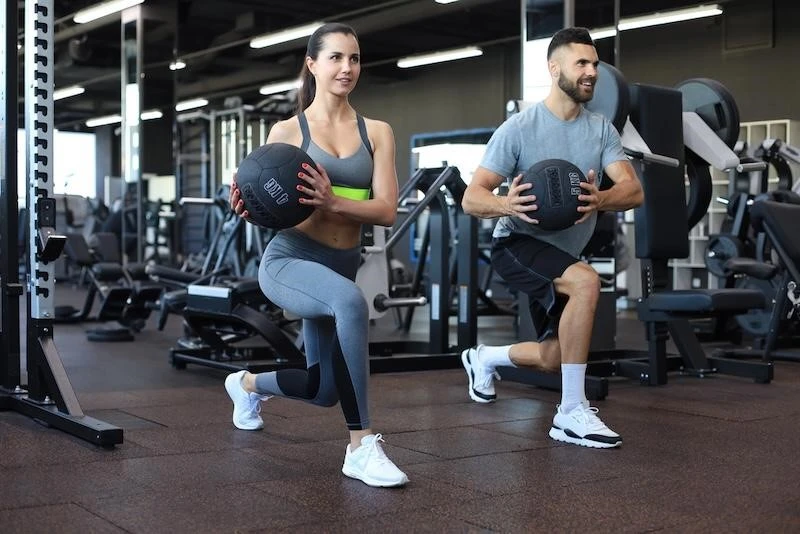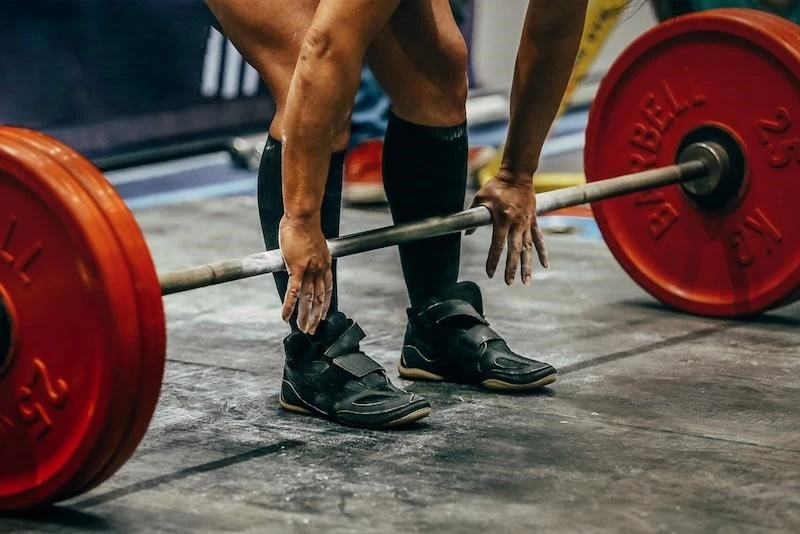Introduction
The fitness supplement industry has exploded with colorful pre-workout powders promising superhuman performance, but what if the perfect pre-workout fuel has been sitting in your kitchen cupboard all along? Coffee, the world’s second most traded commodity, might just be the simplest and most effective way to boost your gym performance.
In this guide, we’ll explore the science behind coffee as a pre-workout supplement, examining its benefits, optimal timing and dosage, potential drawbacks, and practical tips to maximize your results. Whether you’re a casual gym-goer or a serious athlete, understanding how coffee affects your workout performance can help you make informed decisions about your pre-training routine.
How Caffeine Works in Your Body
The Science Behind the Buzz
Caffeine’s performance-enhancing effects stem from its ability to block adenosine receptors in your brain. Adenosine is a neurotransmitter that accumulates throughout the day, making you feel tired and drowsy. When caffeine blocks these receptors, it prevents adenosine from doing its job, resulting in increased nerve activity that leaves you feeling stimulated, alert, and energetic.
This blocking action triggers a cascade of physiological responses: your heart rate increases, blood vessels dilate, and your body releases stress hormones like adrenaline. The result? Enhanced focus, reduced perception of effort, and that familiar coffee buzz that can sometimes escalate into jitters.
Effects on Performance Systems
Caffeine doesn’t just wake up your brain—it directly impacts the systems crucial for exercise performance. It enhances central nervous system function, improving neural drive to muscles and increasing motor unit recruitment. This means you can generate more force and power during your workouts. Additionally, caffeine mobilizes fatty acids from fat tissue, providing an alternative fuel source that can spare glycogen stores during longer training sessions.
Performance Benefits of Coffee
Enhanced Energy and Focus
The most immediate benefit most people notice is increased energy and mental clarity. Coffee consumption 30-60 minutes before exercise can significantly improve focus, allowing you to maintain better form and stay mentally engaged throughout your workout. This enhanced concentration is particularly valuable for complex movements or when learning new exercise techniques.
Improved Physical Performance
Research consistently demonstrates coffee’s ability to enhance various aspects of physical performance:
- Endurance Performance: Studies show caffeine can improve endurance performance by 2-4%, which translates to meaningful improvements in longer workouts or cardio sessions. The mechanism involves both central nervous system stimulation and improved fat oxidation.
- Strength and Power: Caffeine has been shown to increase maximum strength output and power production. This effect is particularly pronounced in exercises requiring explosive movements like sprinting, jumping, or heavy lifting.
- Reduced Perceived Exertion: Perhaps most importantly, caffeine reduces how hard exercise feels. This means you can maintain higher intensities for longer periods without feeling like you’re working as hard.
Timing & Dosage Guidelines
The Optimal Window
Timing is crucial for maximizing coffee’s pre-workout benefits. Caffeine levels peak in your bloodstream approximately 30-60 minutes after consumption, making this the ideal pre-workout window. Drinking coffee too close to your workout may not allow enough time for absorption, while consuming it too early may result in diminished effects by the time you start exercising.
Finding Your Dose
The sweet spot for pre-workout caffeine intake falls between 3-6 mg per kilogram of body weight, which typically translates to 200-400 mg total for most adults. To put this in perspective:
- A standard 8oz cup of coffee contains 80-100mg of caffeine
- A double shot espresso provides about 120-150mg
- Cold brew coffee can contain 150-200mg per 8oz serving
Individual Adjustments
Your optimal dose depends on several factors including body weight, caffeine tolerance, and individual sensitivity. Begin with the lower end of the range (around 200mg) and adjust based on your response. Regular coffee drinkers may need higher doses to achieve the same effects due to tolerance buildup.
Potential Downsides & Who Might Skip It
Common Side Effects
While coffee can be an excellent pre-workout supplement, it’s not without potential drawbacks. Common side effects include jitters, anxiety, rapid heartbeat, and digestive upset. These effects are more likely with higher doses or in caffeine-sensitive individuals.
The digestive effects deserve special attention—coffee stimulates gastric acid production and can accelerate intestinal transit, potentially leading to stomach discomfort or urgent bathroom breaks mid-workout.
Sleep and Recovery Considerations
Caffeine has a half-life of 4-6 hours, meaning it can interfere with sleep if consumed too late in the day. Poor sleep quality directly impacts recovery and subsequent workout performance, potentially negating the acute benefits of pre-workout caffeine.
Who Should Be Cautious
Certain individuals should approach coffee as a pre-workout with extra caution or avoid it entirely:
- Those with anxiety disorders or panic attacks
- People with heart conditions or high blood pressure
- Individuals who are pregnant or breastfeeding
- Anyone taking medications that interact with caffeine
Maximizing Your Coffee Pre-Workout
Black Coffee vs. Additions
Black coffee provides the purest caffeine delivery without additional calories or potential digestive complications. However, adding small amounts of milk or sugar isn’t necessarily problematic and may even provide benefits.
Adding protein powder can provide amino acids for muscle protein synthesis, while a small amount of carbohydrates can top off glycogen stores for high-intensity training. The key is keeping additions minimal to avoid digestive issues.
Strategic Combinations
For longer workouts, consider pairing coffee with easily digestible carbohydrates like bananas or dates. This combination provides both immediate caffeine benefits and sustained energy from carbohydrates.
Alternative Options
If traditional coffee doesn’t work for you, consider these alternatives:
- Green tea: Provides moderate caffeine with L-theanine for smoother energy
- Pre-workout supplements: Standardized caffeine content with additional performance ingredients
- Decaf coffee: Interestingly, the ritual and placebo effect of drinking coffee may provide some performance benefits even without caffeine
- Energy drinks: You can also try an energy drink with minimal, clean ingredients like the lemonade sparkling energy drink from Naked, for a clean boost without the jitters
Conclusion
Coffee can indeed be an excellent pre-workout supplement, offering scientifically-backed benefits for energy, focus, and physical performance at a fraction of the cost of commercial pre-workout products. The key lies in finding your personal sweet spot through experimentation with timing, dosage, and preparation methods.
Start with moderate doses (200mg caffeine) consumed 30-60 minutes before training, and adjust based on your individual response and tolerance. Pay attention to how different preparation methods and additions affect your performance and digestive comfort.
Remember that while coffee can enhance your workouts, it’s not a magic solution. Proper nutrition, adequate sleep, and consistent training remain the foundations of fitness success. Coffee simply provides an accessible, well-researched tool to help you get the most out of your training sessions.
For more detailed information on caffeine and exercise performance, consult resources from the International Society of Sports Nutrition and the American College of Sports Medicine.







